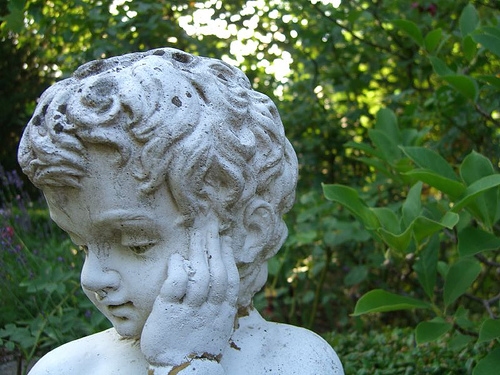Top Ten Myths About Introverts
Perhaps the biggest indicator of personality is whether or not a person is an introvert or an extrovert. Whether you are one or the other is actualized as a mentality about life. It is something that a person is born with. Society over the years has looked down on introverts. Only until recently has the power of introverts started to become harnessed in business and in relationships. Noted for their deep-thinking and loyalty introverts are great employees, friends, and lovers when approach with the right mind set and understanding. Here are the top ten common myths about introverts:
10
Introverts are rude
Introverted people are typically more to the point and direct than their extroverted counterparts. As a result, most don’t waste as much time with social pleasantries. They believe is social efficiency and want everyone to be honest and real. Introverts also feel a lot of social pressure to try to fit in which can also complicate their social interactions. This constant urge can make them feel short strung or impatient. Their shortness and brevity can be taken as rude, when it is not the case at all.
9
Introverts are always high strung
Introverts typically feel the most relaxed when at home or enjoying nature. Most are not thrill seekers and do not enjoy taking unnecessary risks. If the environment they are in has too much noise or is too loud they often feel uncomfortable and tend to shut down. A recent study referenced in the book “The Introvert Advantage’ shows that introverts have more blood flow in their brain than extroverts. This could indicate they are more sensitive to external stimulation, meaning if there is too much of it, their circuits will be overloaded, so to speak. Other physiological differences have been observed in introverts as well. Introverts are more highly susceptible to the neurotransmitter dopamine, which is associated with movement, attention, and learning.
8
Introverts are bad talkers and hate making public speaches
Contrary to popular belief, many introverts are actually better public speakers and talkers than extroverts. It is kind of like quality over quantity. Introverts spend a large part of their social life observing other people. These observations help them understand what motivates them and how they respond to different patterns of speech. With this is in mind, introverts are more likely to be picky about how they chose their words and are good at charming people by understanding what makes them tick.
7
Introverts can learn to become extroverts
If you are born an introvert, you always will be an introvert. Being an introvert means your brain is wired differently that extroverts. No amount of practice is going to change it. This doesn’t mean introverts cannot learn to be more extroverted though. Through practice and exposure they can become more adjusted to social situations and learn to be more outgoing. Being an introvert isn’t a bad thing though. A study has shown introverts on average score several points higher on standardized IQ testing.
6
Introverts hate being in public
If left alone too long, introverts will start to go fester in their own thoughts. They need social interaction just like everyone else; they just don’t need as much of it. It takes longer for introverts to recharge as they process all the information they take in on a daily basis.
[adsense]
5
Introverts are typically nerdy or geeky
It is easy to think just because someone doesn’t say much that they are automatically socially awkward and are nerdy or geeky. This is far from the truth. Introverts look inward for their energy and pay very close attention to their emotions and thoughts. In this sense they are much more in-tune with themselves that the rest of the population. It should go without saying most introverts are just normal people like everyone else. Above all they hate being labeled due to their individualistic nature.
4
Introverts are weird and eccentric
Sometimes people will think introverts are weird and eccentric. This isn’t necessarily true. They tend to stick out more because they are much less likely to follow the crowd. Most introverts are individualists by nature and prefer to be respected for their novel, non-traditional lifestyles. Introverts rarely let public opinion encourage their own. They think for themselves and they often challenge the status quo. Popularity and trends hold little meaning to them.
3
Introverts prefer to be alone
Introverts require friendships and human interaction just as extroverts do. They are more likely to spend their time with one or two people in a quiet setting than attend a loud party or big gathering. Social interactions drain energy from them and they require time to recharge between them. If not given their space, introverts will begin to feel suffocated and stressed. Nothing beats an authentic, real, and sincere connection with another person for an introvert.
2
Introverts don’t like people
People often associated being introverted with being anti-social or disliking people as a whole. This isn’t true at all. In fact, introverts value close friendships more than extroverts do. Most introverts have 3-5 close friends and will likely be life-long friends. It can take a while for an introvert to open up to the world, but once you have earned their respect they are as loyal as can be. It takes a lot to lose the friendship of an introvert.
1
Introverts don’t like to talk much
Introverts only talk when they have something to say. They dislike wasting time on making small talk and other pointless conversations. Once the conversation is veered toward something the introvert is interested in, they won’t shut up about it. They love sharing their well-thought out ideas and opinions with others. They just don’t like talking for the sake of talking.



